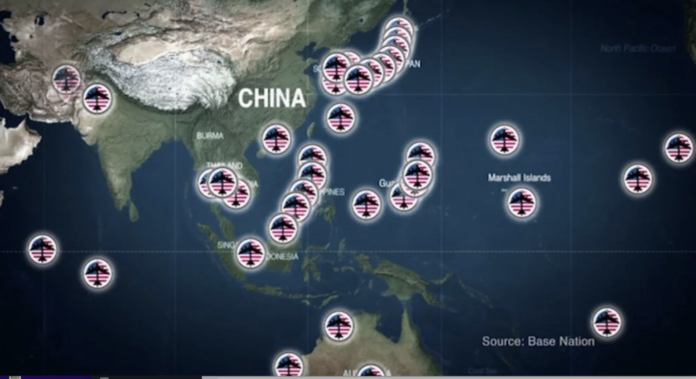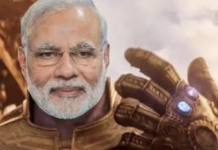President Biden visits Vietnam
After attending the G20 summit in India, United States President Joe Biden visited Vietnam. Increasingly the two countries are becoming more friendly, Vietnamese imports into the United States almost doubling since 2019 to $127 billion; and Vietnam elevating America’s diplomatic status to the nation’s highest level of recognition -‘comprehensive strategic partner.’
President Biden made sure to state that the visit and developing relationship was not intended to contain China or to start a new Cold War. However, Sino-American competition is a feature of the modern Pacific region and the visit will be interpreted in this light.
The South China Sea is a key area of interest for both China and the United States. Vietnam dominates the sea’s west side. The east side is already dominated by United States treaty ally the Philippines. If the United States has access to ports and bases in both nations then China’s ability to operate in the South China Sea is severely compromised.
Therefore, even as President Biden tries to defuse tensions China will be watching the situation closely.
Exercise Garuda Shield – Australia and Indonesia conduct large annual exercise
Since 2009, the Australian and Indonesian militaries have conducted the Garuda Sheild series of annual exercises; and on 1 September, Exercise Garuda Sheild 2023 started. Approximately 5000 Australian, United States, French, British and Indonesia soldiers exercising their fighting ability on the Indonesian island of Java.
This year the exercise involved a small number of Australian and Indonesian tanks and included live-firing activities. The use of tanks provides a chance for the forces exercising to practice integration of armoured forces into large scale combat operations. Exercises like this are expensive and time consuming but are necessary for honing the skills and relationships required to fight. Further, they demonstrate the participants resolve to defend themselves.
Historically, Indonesia has had a good relationship with China. However, in recent years that relationship has been increasingly tense as Indonesia becomes more concerned about China’s aggressive claims in the South China Sea.
Exercises like Garuda Shield and last month’s Talisman Sabre cost a lot of time and money, and the fact that Pacific nations are investing in military training of this nature demonstrates their level of concern about Chinese activity in the Pacific. Specifically, the deployment of tanks indicates that the participants believe a future conflict will be high-intensity and that preparation for a combined arms battlefield on which tanks, artillery and airpower will be used is required. Further, the number of nations and their geographic spread is also important because it demonstrates that even European nations taking the situation developing in the Pacific seriously.
United States and Canadian warship transit the Strait of Taiwan
Recently, Canadian and United States warships USS Ralph Johnson and HMCS Ottawa transited the Straits of Taiwan, exercising the right to freely navigate the open ocean. Thereby challenging China’s legally unsupported claim that the Straits of Taiwan are Chinese territorial waters.
Freedom of transit patrols are a common activity and have a long historic precedent. However, by their very nature they are challenging and create the potential for mistakes and sudden escalations.
Chinese guns in the Solomon Islands???
On 8 September, Al Jazeera News reported that in March 2022 China secretly provided firearms to the Royal Solomon Islands Police. The guns shipped to the islands with export documents claiming that they were replica weapons. Later, that day the Royal Solomon Island Police issued a statement claiming that the guns are replicas used for training and cannot be fired.
However, Al Jazeera disputes this claim and released United States diplomatic cables, stating that: “But despite official denials, US diplomats concluded that the firearms appeared to be real and that Solomon Island authorities were attempting “to recategorize an illicit arms shipment as an authorised shipment of ‘replica’ firearms”, according to a cable written by the US embassy in Papua New Guinea.”
This situation is concerning, Solomon Islands is a volatile nation with a recent history of political violence. If Al Jazeera’s reports are correct and working firearms were imported into the country then the shipment’s arrival date corresponds with a period of violence and rioting in the capital, Honiara.
A key success of the Regional Assistance Mission Solomon Islands in the early 2000s was that it significantly reduced the number of firearms in the community and therefore the potential for political issues to escalate into warfare. Secret imports of weapons into any country are always troubling, especially when the country has a history of political and ethnic violence. There is simply no legitimate reason for well-governed nations to be exporting or importing firearms secretly raising questions about the deal.
Vanuatu government transfers peacefully, after Supreme Court upholds ‘no confidence’ vote
Recently, this column discussed the Vanuatu opposition party’s motion of ‘no confidence’ in the country’s Prime Minister, Ishmael Kalsakau. The vote was tight and legally challenged, forcing the Supreme Court of Vanuatu to rule on the issue. On 25 August, the Supreme Court issued its decision, ruling that the ‘no confidence’ motion was won by the opposition.
This situation led to a change of government last week and the election of a new Prime Minister Sato Kilman, who is entering a fifth term as prime minister. Kilman is closer to China than his predecessor and is likely to re-negotiate the security agreement with Australia that initiated the ‘no confidence’ motion.
This turn of events is another loss for Australia in Melanesia, Vanuatu being likely to reject the recent security agreement with Australia and align itself more closely with China. Vanuatu is important to Australia’s security because it is strategically located roughly in the middle of Solomon Islands, Fiji and New Caledonia. It is about 2000km from Brisbane and if China bases military forces there and in Solomon Islands it would pose a significant threat to Australian maritime trade in the Coral Sea. Access to these islands also provides opportunities for long-term intelligence gathering both undersea information (a possible counter to the new AUKUS submarines), signals intelligence and surveillance of sea and air space.
Therefore, we can be sure that Australia will be looking for opportunities to win back influence in Vanuatu. A difficult task since Australia already provides most of Vanuatu’s monetary foreign aid support meaning that developing a stronger relationship require use of other resources. For instance, economic aid, education support or direct relationship building between key figures. Historically, Australia does not always have a good reputation in Melanesia and has burnt bridges that need to be rebuilt.
Ben Morgan is a bored Gen Xer and TDBs military blogger





“….on 1 September, Exercise Garuda Sheild 2023 started. Approximately 5000 Australian, United States, French, British and Indonesia soldiers exercising their fighting ability on the Indonesian island of Java…”
“….the deployment of tanks indicates that the participants believe a future conflict will be high-intensity and that preparation for a combined arms battlefield on which tanks, artillery and airpower will be used is required. Further, the number of nations and their geographic spread is also important….” Ben Morgan
And it’s One, Two, Three, What are we fighting for? I don’t know. I don’t give a damn….
Country Joe McDonald, Vietnam raga
At this stage along on the way to war with China, rather than concentrating on the balance of forces, the weapons systems and tactics and strategies that each side will use in this war, we probably should look at the actual reasons why we will soon be going to war with each other in the first place.
“Growth” shibboleth the cause of war.
Economic contraction and social breakdown is an impetus for war.
https://www.youtube.com/watch?v=EIT3MWpnBEM&ab_channel=JoeBlogs
CHINA Exports Crashing, Imports Falling, Yuan Tumbles, Property Sector Woes & Typhoon Destruction
August 10, 2023
Exerpt @ 19:25 minutes
….Exports to August were down 8% year on year. For an economy that is looking to achieve 5% growth that is a complete disaster. China’s whole economy is based upon exports. It’s the world’s biggest manufacturer. It makes lots of things and sells them all across the globe….
….imports are also down 7.3% year on year. And the reason why imports are important? Although China is a net exporter, it imports lots of raw materials that it then moves through its manufacturing processes before exporting the finished goods….
The Chinese economy is in the same bind as Japan was prior to WWII
Before WWII Japan was a major exporter of cheap manufactured goods, Just like China today. And just like today, the raw materials that went into making Japanese manufactured goods were in the hands of Western powers.
Indonesia, then known as the Dutch East Indies part of the Dutch colonial empire was the main source of the resources, rubber, oil, minerals, vital to the Japanese manufacturing and export economy.
Growth is not a choice for market economies, it is an imperative. Market economies see limits to growth as an existential threat. Economic contraction leads to mass unemployment which leads to social unrest, which leads to strikes, riots, in extreme cases, civil war and revolution. Social unrest is an existential threat many countries in the past have deemed worth going to war to try and avoid.
To have a clear run to take direct control of the resources of Dutch East Indies away from the Dutch, the Japanese Empire first had to remove the threat posed by the US 6th fleet based in Pearl Harbour to the Japanese planned invasion of Indonesia.
What the Japanese Empire hoped would be a minor skirmish in a limited war, against a relatively weak power, (The Dutch) the US imperialists took the Japanese aggression as an opportunity to crush a major imperialist rival.
The same is likely to happen today. Any Chinese aggression in the Pacific will not be limited, but the start of a major full scale war between the Western Powers and China.
The American Lake
https://monthlyreview.org/2021/07/01/china-and-the-american-lake/
“The power that rules the Pacific…is the power that rules the world.”
Senator Albert Beveridge, January 9, 19001
“The United States is and always has been an Indo-Pacific nation.… A free and open Indo-Pacific depends on robust American leadership.”
National Security Agency director Robert O’Brien, 2020
Bullshit! The Pacific is full of poor Nations & No Resources, your quote is nonsense! It’s Who controls the world Island of Eurasia that controls the World! That’s why the US Empire has gone after Russia using Ukraine as its Proxy & then to can go after China next, unfortunately the Plan has blown up in the Neocon’s face with Ukraines guaranteed defeat & Kissisnger’s nightmare scenario of China & Russia joining forces has been the result of America’s incompetence In Geopolitical affairs!
The Kremlin needs better trolls
62nd ‘Antforce Army’ troll, shows total ignorance of the Pacific region.
“Bullshit! The Pacific is full of poor Nations & No Resources, your quote is nonsense!” Antforce62
https://www.greenleft.org.au/content/mine-centre-west-papuas-colonisation#
…..the largest gold mine and third-largest copper mine in the world — is central to the story of West Papua’s colonisation. The mine, in West Papua’s Waa Valley on traditional lands (tanah adat) belonging to the Amungme and Kamora people, is a site of extraction, violence and profit.
Understanding Grasberg’s existence involves understanding United States mining company Freeport’s entangled history with former Indonesian President Suharto’s military regime….
https://www.navy.gov.au/media-room/publications/semaphore-04-03
Royal Australian Navy
https://www.navy.gov.au ›
Semaphore-04-03
The resources in the JPDA amount to almost 12 trillion cubic feet of gas and 900 million barrels of oil.
https://www.theguardian.com/world/2021/jun/14/why-the-worlds-most-fertile-fishing-ground-is-facing-a-unique-and-dire-threat
China’s Pacific fishing fleet has grown by 500% since 2012 and is taking huge quantities of tuna
Read more of our Pacific Plunder series here
https://www.theguardian.com/world/series/pacific-plunder
https://www.nature.com/articles/d41586-019-02242-y
….a remote part of the Pacific Ocean known as the Clarion–Clipperton Zone (CCZ). The sea floor there boasts one of the world’s largest untapped collections of rare-earth elements. Some 4,000 metres below the ocean surface, the abyssal ooze of the CCZ holds trillions of polymetallic nodules — potato-sized deposits loaded with copper, nickel, manganese and other precious ores…..
The Kremlin needs better trolls
The Antforce Army
https://chase-mcflys-bionic-superhero-secret-service-division-franchise.fandom.com/wiki/Z-Tech_Research_Facility
Z-Tech Research Facility
Location
Palo Alto, California
Zeke Grundy (former owner)
Ryan Walker (current owner)
Theresa Perry (Former Owner)
Winter Maddox ( Former Owner)
Paisley Houndstooth (Employee)
Dorian Banister (Employee)
Several more employees
The Elite ANT Force (formerly)
The ANTS (formerly)
Cameron Parks (briefly)
Z-Tech Research Facility, formerly known by the names WinterTech Technology Center\ Talent Training Academy, Z-Tech Prodigy School, and PerryTech Technology Center, was where the Elite ANT Force was centered from its creation….
O’Dea, the Azoz Battalion Troll, Neo Nazi loving, China bashing Pat is at it again? Here’s a suggestion for your Pat, drape yourself in your yellow & blue flag & fly yourself over to Ukraine, Zelensky needs more Canon fodder, put your big mouth words into action & go & fight for your Nazi mates!
The arrogant colonialist mentality.
“The Pacific is full of poor Nations & No Resources,..” Antforce62
Correction: The Pacific is full of resource rich nations, that have been mercilessly, plundered, robbed and their people exploited, by the imperialist colonialist powers.
http://archive.iwlearn.net/sprep.org/topic/NatRes.htm
https://iso.org.nz/2022/08/13/imperialism-in-the-pacific/
Free Tibet
Free Inner Mongolia
Free Xinjiang
Free Hong Kong
Free the decent people of China from the evil CCP Chinese Criminal Party
The arrogant colonialist mentality.
“The Pacific is full of poor Nations & No Resources,..” Antforce62
Correction: The Pacific is full of resource rich nations, that have been mercilessly, plundered, robbed and their people exploited, by the imperialist colonialist powers.
http://archive.iwlearn.net/sprep.org/topic/NatRes.htm
https://iso.org.nz/2022/08/13/imperialism-in-the-pacific/
They are poor, that’s a fact, due to lack of Investment & a lack of Resources apart from fishing stocks! And who are they turning to O’Dum for Investment & funding? The Pacific Islands are turning to China to build their ports & Infrastructure & Funding not the Western Neocolonial powers!